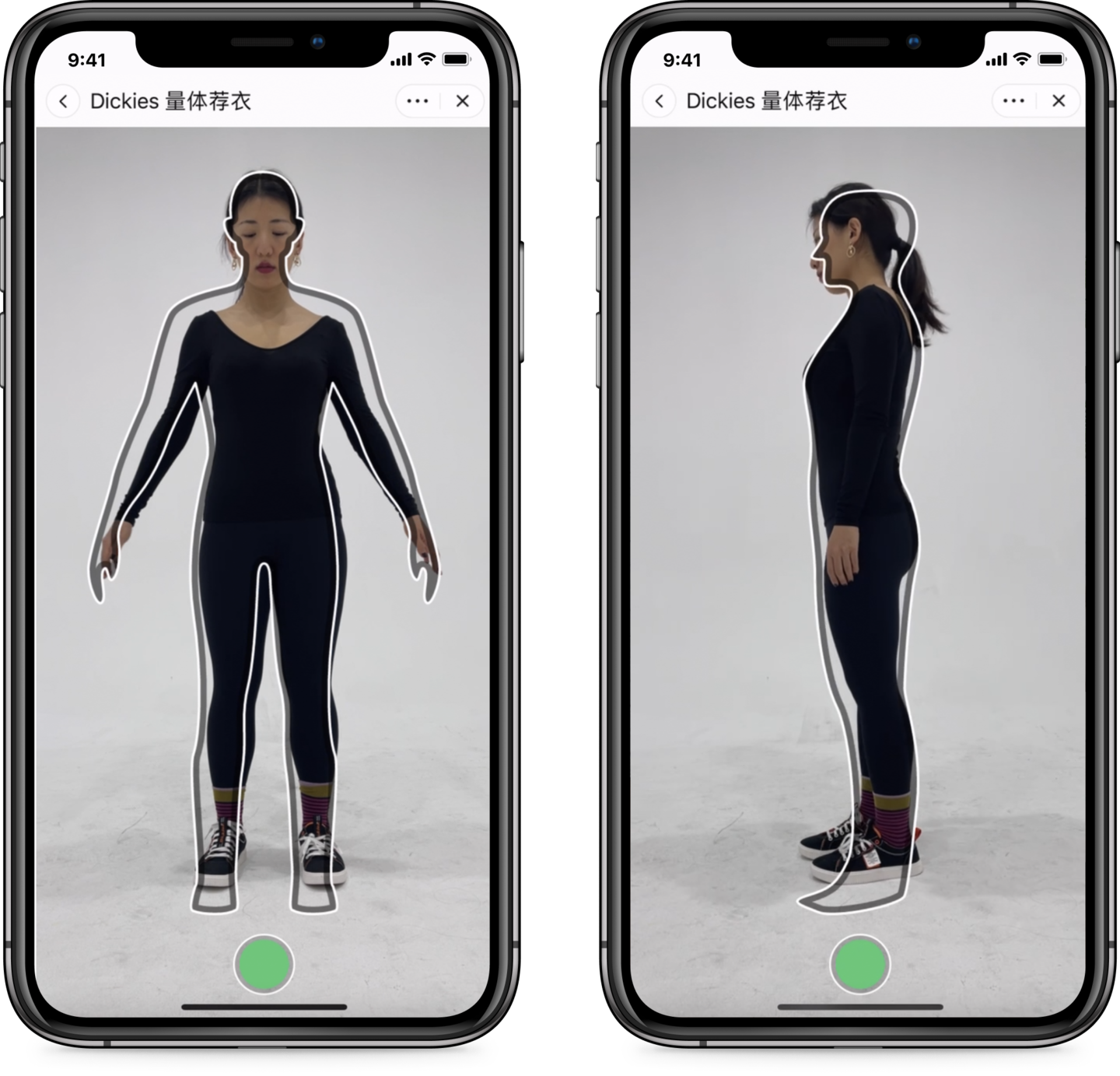
The Business of Fashion
Agenda-setting intelligence, analysis and advice for the global fashion community.

Agenda-setting intelligence, analysis and advice for the global fashion community.

Dickies, the American workwear-slash-streetwear brand owned by VF Corporation, has partnered with AI mobile body measuring specialists 3DLook to launch customised fitting on the brand’s Tmall Global storefront.
The pilot program takes 80 measurement points from two smartphone photos uploaded by a shopper and recommends sizing based on this data.
Cross-border shopping via platforms such as Tmall Global has boomed in recent years, proving popular because it doesn’t require a legal Chinese business entity and eliminates the need to import a large amount of inventory into the country, as products can be shipped from overseas or from bonded warehouses in China’s free trade zones.
For fashion brands, however, sizing has proven a hurdle to garnering cross-border sales, particularly for niche international brands as Chinese consumers are unfamiliar with their sizing and cross-border selling requires longer delivery times and more logistical hurdles to clear for returns. All this often adds up to customers choosing to buy fashion products available locally, which can be more easily received and returned, or choosing familiar brands and products to buy via cross-border.
ADVERTISEMENT
AI fitting solutions are one way to lessen this barrier for brands such as Dickies, which is also looking at the technology as a step towards shifting to a customer-centric, on-demand manufacturing business model. VF Corporation is also hoping to roll out similar programs across other brands in its portfolio.
“The pandemic only accelerated our need to use digital technologies to become more agile and responsive to consumers’ demands and fit recommendation was one of the top opportunities we identified,” said Adela Tan, vice president and managing director of Dickies, VF Asia Pacific. “We chose to ... target China’s digitally savvy Gen Z consumers and better understand their appetite for such functionality, so we can incorporate the learnings and scale our efforts across multiple brands and regions.”
With consumers tightening their belts in China, the battle between global fast fashion brands and local high street giants has intensified.
Investors are bracing for a steep slowdown in luxury sales when luxury companies report their first quarter results, reflecting lacklustre Chinese demand.
The French beauty giant’s two latest deals are part of a wider M&A push by global players to capture a larger slice of the China market, targeting buzzy high-end brands that offer products with distinctive Chinese elements.
Post-Covid spend by US tourists in Europe has surged past 2019 levels. Chinese travellers, by contrast, have largely favoured domestic and regional destinations like Hong Kong, Singapore and Japan.